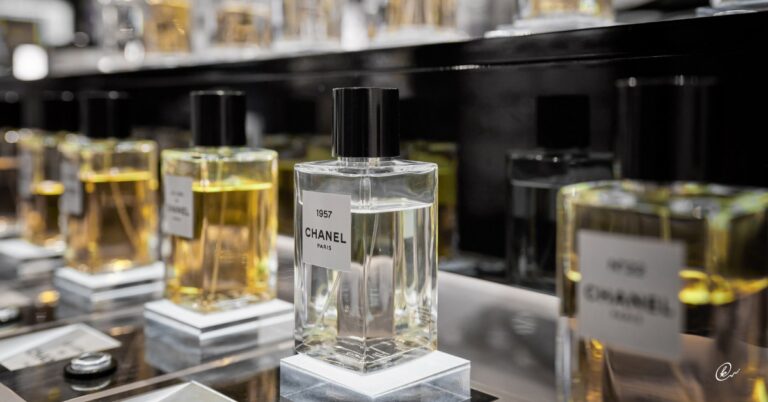Why do people shop? Is it a response to some inner need to spend money (even if they shouldn’t be spending the money)? Do they actually want to make some sort of statement (be it some sort of fashion statement or other)? Should price and/or quality make that much of a difference in what is sought or to be purchased? Is a brand name or designer always better? Why would someone settle for a knock-off of an item?
It can be an insight into the person, let alone personal style and values. But sometimes, I think that being bigger or more expensive isn’t always better. There are those that settle for even a knock-off (a fake Louis-Viton, Fendi, etc.) Deep down, they have “a designer,” but for far less than the original costs, while the expert can spot a fake barely a mile away.
A retailer or shop is a business that presents a selection of goods or services and offers to sell them to customers for money or other goods. Shopping is an activity in which a customer browses the available goods or services presented by one or more retailers with the intent to purchase a suitable selection of them. In some contexts, it may be considered a leisure activity as well as an economic one. The shopping experience can range from delightful to terrible, based on a variety of factors, including how the customer is treated, convenience, and mood. The shopping experience can also be influenced by other shoppers.
A report that came out in 2000 asserts that women purchase 80% of all consumer goods and influence 80% of healthcare decisions. But this begs the question of how well-informed and educated these women are on the things to purchase. Many times, when a woman goes shopping either by herself or with a family member or friend, a salesperson will stop at nothing to make the sale, even resorting to sneaky or underhanded methods.
Consumers may not know what they walked into and may leave feeling that they have gotten the best price for something they want. Doing your homework prior to going out looking for something is important; otherwise, you can get taken.
I believe in shopping around and comparing prices to get the correct thing at the best possible price for what I am looking for. Even if it involves “Window shopping” at first, this refers to the browsing of goods by a consumer with no intent to purchase or to plan a later purchase. Something I was taught by my parents, and I believe true today is that if you want something bad enough (like a radio, television, etc.), you should put the money away for it. A child could always save money from their allowance, earn money by babysitting, rake leaves, shovel snow, offer to help neighbors, do chores and so much more.
But why, with money, does it necessitate to have the most expensive or luxury items? Is it to say, “Look at me, I can afford the best, “or are you saying something else? Having money and good taste aren’t always the same thing.
Something that can be enjoyable and fun is fairs and markets, which have a long history that started when humans felt the desire to exchange goods and services. People would shop for goods at a weekly market in nearby towns. The shops began to be permanently established. Shops were specialized, e.g., a bakery, a butchery, a grocer. Then supermarkets appeared. Sometimes, peddlers and ice cream trucks pass through neighborhoods offering services and goods.
Even yard sales, farmer’s markets, and estate sales have been growing in popularity over the years. They also a good way to get quality items at a substantial savings for the consumer, but the buyer has to be open to what is being offered and not just say “I don’t care what is being sold I will buy anything.” It takes a great deal of time, effort and patience to find just the right thing.
Stores are divided into multiple categories that sell a selected set of goods or services. Usually, they are tied by target demographics based on the income of the shopper. They can be tiered from cheap to pricey.
Why does there need to be a “label” on items? Is it a status thing or just a way to show how shallow a person can be? I’m not knocking good quality or name items, but I find it difficult to enjoy having something so nice when one can afford things no matter what the cost and others among us have to struggle for everything they have or hope to get. I have excellent taste (and have many good quality things such as Waterford Crystal and Lenox) and appreciate the finer things, but that doesn’t mean that I have to have a mansion or some high-priced home to showcase things and flaunt things. It can be better to get good quality for a fraction of the cost even if it is not a top-name designer (or find good quality at reduced prices at a discount or outlet store).
Some shops sell secondhand goods. Often, the public can also sell goods in such shops. In other cases, the public donates goods to these shops, commonly known as thrift or charity shops. Consignment, thrift, or charity shops are excellent places to find good merchandise while helping out the community. In antique shops, the public can find goods that are older and harder to find. Shopping frenzies are periods of time where a burst of spending occurs—typically near holidays in the United States, where Christmas shopping is seen as the biggest shopping spending season, starting as early as October and continuing until after Christmas.
Some religions regard such spending seasons as being against their faith and dismiss the practice. It gives a new meaning to making homemade items to give as gifts. Many question the over-commercialization and the response by stores that downplay the shopping season, often cited in the Christmas controversy or war on Christmas.





